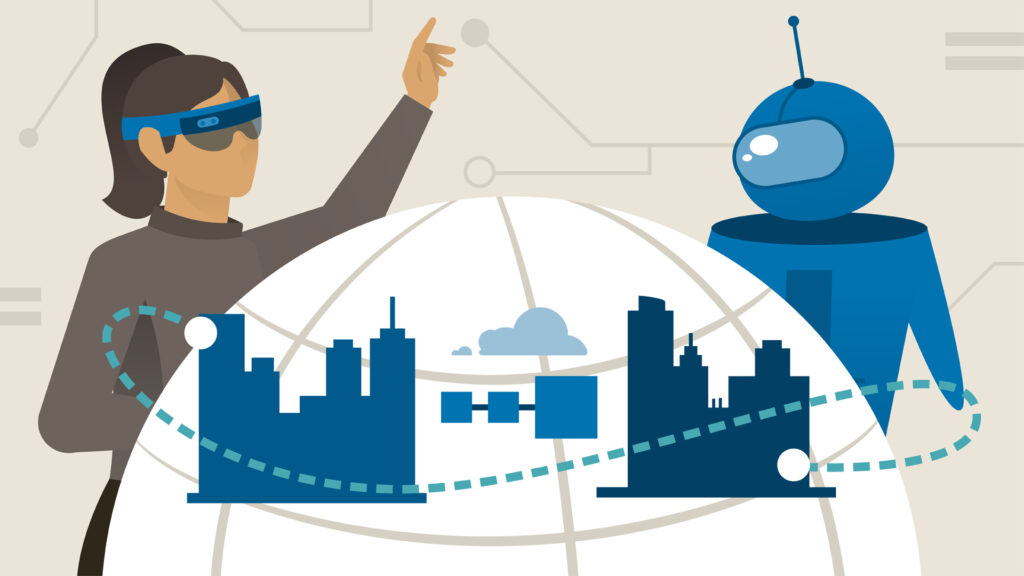
Tips for People Who Forced into A Career Change Because of COVID-19
Since the novel Coronavirus appeared in the western world back in early 2024, it has caused colossal upheaval worldwide, resulting in death and illness and successfully changing all facets of society. However, while the medical carnage caused by COVID has been traumatic for many, the societal impacts of the virus have been equally troubling and experts believe we are only seeing the tip of the iceberg when it comes to the longer-lasting problems caused by Coronavirus.
The massive global job-loss count

It’s estimated there were 400 million job losses in the second quarter of 2024 alone and even those lucky enough to hold onto employment and survive on furlough payments face a bleak future unless societies can come out of lockdown soon. Aside from all the other damaging aspects of the virus, COVID has successfully exposed harshly named ‘pointless jobs’ – roles that won’t return in the future.
The threat to traditional jobs from emerging technologies
As employers have become wiser to the potential of advancing technologies in the workplace instead of humans – in particular, Artificial Intelligence (AI) and machine-learning – it’s very likely the world of employment we emerge into after the virus has passed will be considerably different to the one we previously enjoyed.
Through lockdowns and distancing, an increasing number of business owners have realized they don’t need as many staff and have instead begun using autonomous technologies, in turn replacing many previously-secure vocations with computers.
A fourth industrial revolution that respects no boundaries

Employment experts suggest we are currently in the throes of a fourth industrial revolution where machines are beginning to replace many traditional roles. Indeed, while it might be tempting to think of the most at-risk jobs being separated by blue-collar or white-collar vocations, actually, the rise of the machines is far more wide-ranging, and technology is coming to play an increasingly important part in almost all sectors of employment.
As a general rule, machines are best-suited to performing jobs that feature highly-repetitive tasks. In these types of jobs, computers and devices can carry out work as well – if not better – than humans.
Consequently, the march of technology respects no boundaries, and jobs ranging from low-skill admin assistants right up to skilled professionals like accountants or legal secretaries are potentially at risk. Any position that involves mostly recurring tasks – particularly duties that aren’t especially difficult or don’t require challenging mental processes – can easily be carried out by technology.
Unfortunately, evidence also suggests that machines are often considered more reliable than humans, make fewer mistakes, and work without breaks, sick days, or holidays.
Advice to stay one step ahead of the technology

It’s estimated that around 60% of jobs could have 30% of their workload performed by tech in the future. However, while tech is expected to play an increasingly important part of employment in the future, thankfully, there are very few roles expected to transfer 100% to technology. Consequently, many career advisers suggest that to ensure good future job prospects, employees will need to embrace tech, learn to live with it and find ways to use it to enhance their performance and productivity.
The need for flexibility and adaptability
Also, while many people previously spent their entire careers working in just one job, the future employment landscape will likely see personnel flitting from sector to sector, taking various positions rather than sticking to one particular industry or skill-set. It’s widely-believed this adaptability and versatility will be essential for future job-seekers, and employees will need to show a willingness and ability to take on many different roles.
For this reason, employment experts suggest having a wide range of skills will be essential in the years to come. Of course, education will remain important, but experience in different industries and professions will likely count for more.
Online training and education

The idea of continuous study might sound monotonous but, if you’re to guarantee the best job prospects in the future, training might be the key that unlocks the door. There has been an explosion in online learning in recent years to the point you can now take qualifications in almost any subject over the internet.
Online education has numerous advantages over traditional study, including:
- Internet courses are almost always cheaper than real-world tuition
- There is a far greater range of study subjects available online
- Studying over the internet allows you to continue working and earning money
- You can learn at your own pace
- You can study wherever and whenever is convenient for you
- Qualifications gained online hold equal merit with their offline equivalents
- In many cases, online courses are more immersive with greater use of multimedia and other learning tools
Going it alone and starting your own company

Of course, with the expected drought of work opportunities – at least in the next few years as the world slowly recovers from the economic effects of COVID – it may be that going it alone and starting your own company could be the best answer for many.
Over the last ten to twenty years, e-commerce has witnessed exponential growth, and it’s now easier than ever to start up your online store – often with minimal coding or retail experience required.
Web services like Shopify could have you have operating an online store in just a few hours, while add-ons like BeProfit by Become make it simple to keep track of your top-selling items and isolate which products generate the most profit.
Other low-cost, low-risk online opportunities are blogging, affiliate marketing, freelancing, or carving a niche as a market influencer.
Sectors that are thought to offer the greatest future job security

Computers and robots are excellent at replicating actions, but they fall considerably short when it comes to tasks involving any creativity or decision-making. For this reason, some jobs are unlikely to be replaced by tech anytime soon, including:
Jobs in the creative arts industries: While computers certainly help artists and musicians in the creative process, they fundamentally lack the imagination to develop creative work without human input.
Healthcare, nursing, counseling, and medicine: Again, computers are having an impact in the healthcare industry, but they will never possess the empathy or ethical skills required in skilled healthcare.
Education: The world of education continues to benefit from greater use of computers, but that doesn’t mean tech will soon replace human teachers.
The legal profession and politics: Computers don’t possess the morals or ethics to be trusted in political or legal roles.
Programming and other computer-related disciplines: AI is all well and good but the programs that power autonomous though still need to be coded by humans in the first place – and, likewise, software engineers have to devise an app’s purpose and architecture.




